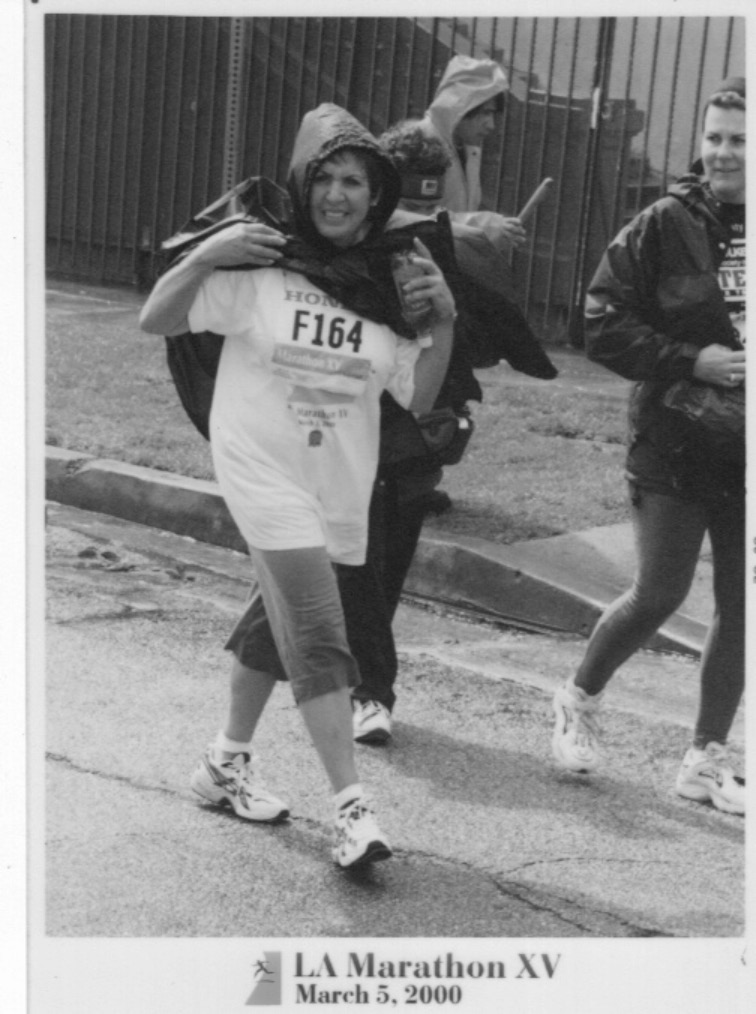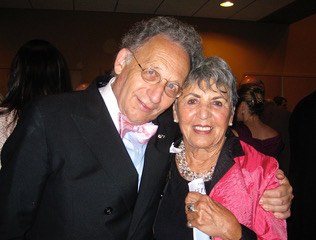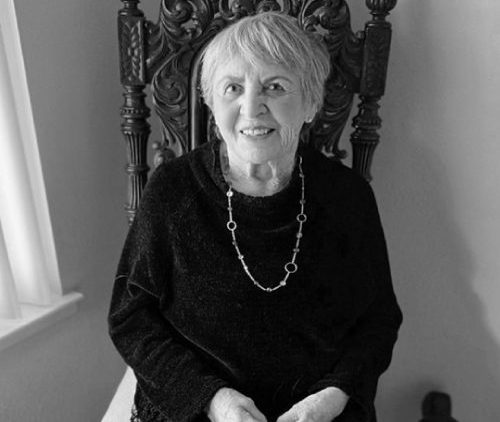Celebrating Hope Rosenfeld at 100
100 Years of Hope: The Life of Hope Rosenfeld, a Remarkable Centenarian
Hope Miriam Berkelhammer Rosenfeld was born June 12, 1924 in Providence, Rhode Island. She has always loved her first name, one that speaks to the manner with which she would go on to live the next 100 years. She was the third child born to Jacob/”Jack” Berkelhammer, an immigrant from what is now southern Poland and Lena/”Lee” (Bliwise) Berkelhammer, born to Romanian immigrants in Harrison, NJ. Albert came first, followed by “Coleman” who lived only three months, before Hope joined the family. Charlotte was the last child.
Hope adored her father and her maternal grandmother, Anna/”Annie” (Marcuse) Bliwise who was born in Romania in 1857. She had a wicker basket, always packed with overnight necessities, that she would grab and take with her around the corner to Grandma Annie’s house any time she got upset with her manipulative little sister and/or her mother who, though brilliant and loving in many ways, had an overbearing demeanor and demanded a lot from her middle child. Grandma Annie was her anchor. Hope was only 14 and left utterly devastated when her grandmother passed in 1938.
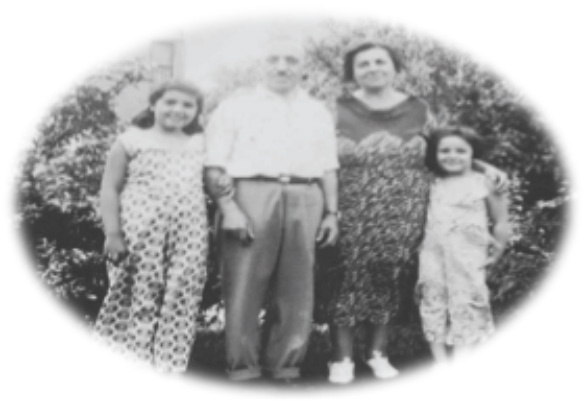
At first glance, it would appear Hope had an idyllic childhood in Newark, NJ where the family moved when she was eight months old. Beautiful home, lots of children with whom to play, good schools, an early introduction to music by her mother that has brought her lifelong joy, piano lessons, a marvelous nearby synagogue, special bonds with her grandmother and father, and summers spent with family and friends in a sprawling rental on the Jersey Shore. At a young age she even had the freedom to travel by bus to her birthplace and to visit out-of-town relatives elsewhere, as well as go unescorted with friends to New York City. There were indeed good times; but childhood traumas left an indelible impression on this rather shy, very perceptive, compassionate and intelligent little girl, experiences that started molding her mindset and chosen path for the next century. She befriended Maggie, a neighbor’s housekeeper and former slave, with whom she would garden, as well as Cecil (a Black chauffeur across the street) who she joined many mornings walking his employer’s dog. Hope became close friends with the only Black girl in her elementary school and brought Gertrude home with her to share cookies and play. She confronted anti-Semitic residents on her street with kindness and perseverance, in large part winning over all but Mr. Vogel two doors down, who (like others around town) displayed a Nazi flag on his front lawn and was hateful. She faced prejudice by those who mistook her for a Native American because of her deep tan and waist-length braids, as well as young classmates (and other adults) who had been raised to despise those of her faith. She helped her mother prepare meals for those left destitute by the Great Depression and was distraught by the scope of suffering, as well as lives lost in the depth of despair. And, then of course, there was the horror of the Holocaust that snuffed out countless lives, including many of her father’s family still residing in Tarnów, Poland at that time; attack on Pearl Harbor that drew the U.S. into World War II; prevailing Nazi sympathizers throughout the States; and the reign of terror by Father Coughlin, a high-profile hate spewing, anti-Semitic Catholic priest and Hitlerite.
After graduating from high school, Hope wanted to go abroad to help at a kibbutz in Israel, an aspiration quickly squelched by her parents out of concern for her safety. So, she became the first female in New Jersey, at the age of 19, to help fill one of the positions vacated by men sent into battle overseas. After intense training, she was assigned a role at the magnificent Mulhocaway Farm in Hunterdon County, NJ, owned by Lloyd Wescott, brother of the famous author, Glenway Wescott. Every day for six days a week, Hope rose at 3:15 in the morning to feed and milk cows, clean stalls, walk calves and clean the milking equipment – the same routine was repeated every afternoon around 3:00. She was included in bigger-than-life interactions with the family and wealth of high society guests at the dinner table every night. Hope was devastated upon injuring her hand and having no choice but to return home to heal after that life-enriching experience of nearly one year.
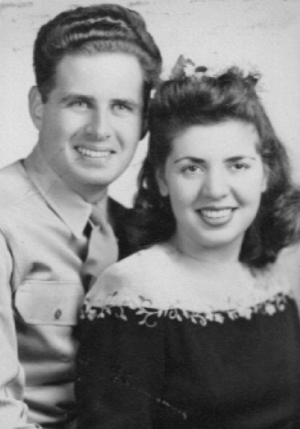
She met Leonard/”Len” Rosenfeld at the beach one summer, when she was sixteen. He aspired to be a rural physician; but because of his faith and despite graduating first in his pre-med. classes at Rutgers, he was denied admission to all medical schools in the U.S. and even some abroad. Len then chose to enlist and served as a navigator in the U.S. Army Air Corps, stationed in Guam, for the next four years. He and Hope married August 15, 1944 when she joined him at Tinker Field in Oklahoma City, OK before his deployment. She was 20 – he was 24. One day Hope decided to take a bus from the base into town, only to find all the Black servicemen had been forced to sit at the back. Finding that appalling, she elected to join them. The driver yelled at her to move to a seat in the front, but she refused to budge. He finally gave in and reluctantly drove off. After his four-year stint, Len and Hope moved to Philadelphia, PA where he finally was accepted at Hahnemann Medical College (now known as the Drexel University College of Medicine). After finishing medical school (again at the top of his class) and an internship, he chose to establish a practice in the very rural community of Ringoes in Hunterdon County, New Jersey in 1951. They would reside there for the next twenty years. Their first child, Paul, was born during their stay in Philadelphia – their other three children were born in Ringoes. Len often worked 18-20 hour days throughout the county and though he was a loving father and husband, Hope faced raising their children primarily on her own. Despite the hectic schedule of motherhood, she was determined to be a respected, contributing member of an overwhelmingly anti-Semitic community and became very involved on multiple levels. Hope and a newfound friend attended city council meetings and succeeded in forcing the resignation of the mayor and other inept, anti-Semitic council members. She was elected president of the school board (a position she held for eight years), again forcing out its incompetent members. She paved the way for refurbishment of the local school’s library and stocking it with a broad spectrum of quality literature. Hope also was instrumental in bringing in a highly qualified and respected new principal. She helped prepare meals for the annual fundraiser for the volunteer fire department and sat on the planning committee for the Hunterdon County Medical Society’s yearly holiday ball. She taught Sunday School at the synagogue in Flemington, NJ and made certain that, like her, her children learned about Jewish history and the bible and that both her sons were Bar Mitzvahed. Hope was keenly aware of the prejudices against Blacks and their struggles, so she started bringing local young Black children to her home on weekends to study and use the family pool. She expanded her help to busloads of underprivileged Black children from Trenton. She volunteered from 9:00 p.m. to midnight six days a week for nearly one year as a lookout for Soviet enemy aircraft during the Cold War in 1955-56. Hope started playing tennis and took art classes. Almost every Wednesday, Len’s only day off, they frequented New York City to dine at a nice restaurant before going to the opera, a play or attending a music performance.
In 1970 Len accepted a position with a medical group in Van Nuys and Burbank, CA at which time the family moved to Lynn Ranch in the unincorporated sector of Thousand Oaks. He retired in 1992 after serving a total of 42 years as a healthcare provider. Hope initially focused her time in the Conejo Valley on causes close to her heart until which time the children were grown and on their own. She and a dear friend, who she had met during her time in Ringoes, decided to open a high-end stationery store in 1981. Parchment found a home in Westlake Village and catered to the needs of many Hollywood celebrities. Hope left the business after 18 years, as her husband’s health declined. She went on to endure Len’s passing in 2002 and the losses of their two beloved, all-too-young sons thereafter.
She participated, and crossed the finish line, in seven Los Angeles Marathons, the last being when she was 74. She continues to do 10,000 steps daily and attends a weekly weight training session, something she started 24 years ago!
Through good times and those that have been painful, Hope has been fueled by her much loved and loving children, grandchildren and close friends, as well as her lifelong passion for music. She was very involved as a supporter of the L.A. Opera, Colburn School of Music, Camerata Pacifica and other groups for many years; but it is with the New West Symphony that she focused the bulk of her time, expertise and financial support, almost from its inception. She helped prepare meals for NWS orchestra member rehearsals, hosted events at her lovely home, opened her door to guest performers and conductors who needed a place to stay, served as president of the NWS League and much more. And, as she celebrates her 100th birthday, she continues to relish NWS performances that she attends faithfully. They are a gift that continues to bring her endless pleasure and for which she is forever grateful.
Written by Carol A. Knowles
Author of 100 Years of Hope: Memoirs of Hope M. Rosenfeld, available now on Amazon.com
